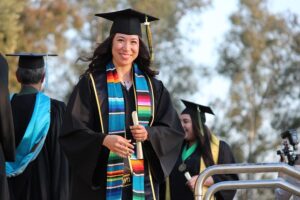Unlocking Academic Doors: Expert Translations for Personal Statements
Professional translation services for Personal Statements and Statements of Purpose (SoP) empower international students to overcome language barriers in academic applications. They ensure diverse perspectives are accurately represented, foster inclu…….
Professional translation services for Personal Statements and Statements of Purpose (SoP) empower international students to overcome language barriers in academic applications. They ensure diverse perspectives are accurately represented, foster inclusive global learning environments, and enhance application quality through nuanced cultural interpretations. These services are crucial for successful admissions in today's interconnected academic world.
Academic institutions worldwide recognize the importance of accurate translations for personal statements and statements of purpose (SOPs) in international student admissions. As global education becomes increasingly diverse, these written essays play a pivotal role in evaluating prospective students. This article explores the critical aspects of translation in academic settings, highlighting how professional interpretation facilitates a smoother process for international applicants. We delve into various sections, including the impact on admissions, cultural considerations, and the art of conveying personal narratives across languages, ultimately emphasizing the significance of trust in translation for building academic bridges.
- The Role of Accurate Translations in Academic Admissions
- Enhancing International Student Applications
- Navigating Cultural Barriers with Professional Translation
- Why Personal Statements Need Expert Interpretation
- Ensuring Clarity: Translating Declarative Essays
- Global Reach: Expanding Educational Opportunities
- Precision in Statement of Purpose Localization
- Breaking Language Walls for Academic Success
- The Art of Conveying Personal Narratives Across Languages
- Trust in Translation: Building Academic Bridges
The Role of Accurate Translations in Academic Admissions
Accurate translations play a pivotal role in the admissions process for academic institutions, especially when evaluating international applications. As universities and colleges worldwide strive to create diverse and inclusive learning environments, they recognize the value of understanding an applicant’s educational background, motivations, and goals, regardless of their native language. Personal Statements or Statements of Purpose (SoP) are essential components of a student’s application, offering insights into their personality, experiences, and aspirations.
Therefore, when prospective students from non-English speaking countries submit their applications, institutions rely on professional translation services to ensure these critical documents are accurately conveyed. Well-translated personal statements not only facilitate fair evaluation but also foster cultural exchange and global academic communities. This process allows admissions officers to make informed decisions, considering the unique perspectives and contributions that multilingual applicants can bring to their campuses.
Enhancing International Student Applications
International students aspiring to study abroad face a significant challenge: communicating their academic and personal aspirations in a language other than their native one. This is where professional translation services for personal statements / statements of purpose come into play, acting as a bridge between applicants and academic institutions.
By offering accurate and culturally sensitive translations, these services ensure that international students’ unique perspectives and motivations are conveyed effectively. Well-translated personal statements not only enhance the application’s overall quality but also foster a more inclusive environment for diverse student bodies. This, in turn, can lead to richer academic discussions and a vibrant global learning experience.
Navigating Cultural Barriers with Professional Translation
In today’s globalized academic landscape, personal statements and statements of purpose have become pivotal documents for international students seeking admission to prestigious institutions. However, navigating the nuances of language and culture can pose significant barriers. This is where professional translation services step in as game-changers, ensuring that these essential documents accurately represent the candidate’s voice and intentions.
Professional translators, well-versed in both language and cultural contexts, play a crucial role in overcoming these barriers. They meticulously capture not just the literal meaning but also the underlying intent of the original text. This involves understanding academic expectations, cultural subtleties, and personal experiences, translating them into a coherent and compelling narrative that resonates with academic institutions worldwide. By employing such services, students can ensure their personal statements and statements of purpose are effective in telling their unique stories, ultimately enhancing their chances of acceptance.
Why Personal Statements Need Expert Interpretation
Personal statements and statements of purpose are integral components of any academic application, carrying significant weight in the evaluation process. However, their nuanced nature demands expert interpretation. These essays often reflect an applicant’s unique experiences, aspirations, and writing style, which can be challenging to convey accurately through translation.
The complexities arise from cultural nuances, idiomatic expressions, and diverse literary styles. Machine translations may struggle to capture the essence and intent behind these writings, potentially leading to misunderstandings or misinterpretations by academic institutions. Thus, trusting professional translators with personal statements ensures that applicants’ voices and intentions are preserved, enhancing the overall application’s authenticity and quality.
Ensuring Clarity: Translating Declarative Essays
Academic institutions place immense trust in personal statements and statements of purpose, often crucial components of an application. When considering translation services for these essential documents, clarity is paramount. The process involves more than simply converting words from one language to another; it’s about ensuring the essence and intent of the original essay remain intact.
Professional translators specializing in academic documentation employ meticulous techniques to capture the subtleties and nuances of the source text. This includes a deep understanding of both the target and source languages, as well as an awareness of cultural contexts. By carefully navigating syntax, phrasing, and idiomatic expressions, they guarantee that the translated personal statements or statements of purpose not only convey the same message but also meet the rigorous standards expected by admissions officers.
Global Reach: Expanding Educational Opportunities
In today’s globalized world, academic institutions are no longer confined to geographical boundaries. This expansion has led to a diverse student body with unique cultural backgrounds and languages. For non-native English speakers, expressing their aspirations and experiences through personal statements or statements of purpose (SOPs) can be challenging but crucial for gaining admission into top universities worldwide.
The trust placed in professional translation services for these documents highlights the growing recognition of global educational opportunities. Accurate translations ensure that admissions officers can access the depth of a candidate’s background, motivations, and potential contributions to the academic community. This process democratizes education, allowing talented individuals from diverse linguistic backgrounds to showcase their stories and secure places in prestigious academic institutions.
Precision in Statement of Purpose Localization
Precision is paramount when it comes to translating Personal Statements or Statements of Purpose. These documents are a crucial component of an academic application, as they offer insights into the candidate’s aspirations, motivations, and potential contributions to the institution. When seeking translation services for such statements, academic institutions must prioritize accuracy to ensure the translated content not only conveys the original meaning but also resonates with the target audience.
The localization process requires a deep understanding of both the source and target languages, as well as cultural nuances. Translators should go beyond word-for-word substitution and aim for semantic equivalence, capturing the essence and intent behind each sentence. This meticulous approach guarantees that the translated Statements of Purpose maintain their integrity while adapting to the cultural context of the institution they are submitted to.
Breaking Language Walls for Academic Success
Breaking Language Walls for Academic Success
In today’s global academic landscape, where diverse student bodies gather from every corner of the world, language becomes a pivotal barrier to entry. However, this wall can be breached effectively through meticulous and professional translation services for personal statements or statements of purpose (SOPs). These documents, often crucial for admission into prestigious institutions, carry the weight of an individual’s academic and career aspirations. Therefore, ensuring their clear and accurate transmission across languages is paramount.
By availing of specialized translation services tailored for personal statements, students can present themselves authentically to academic reviewers. This process involves not just converting words from one language to another but also conveying nuances, experiences, and motivations in a way that resonates with the intended audience. It’s about breaking down linguistic barriers to foster understanding, ensuring that the essence of each applicant’s journey and goals shines through clearly, regardless of their native tongue.
The Art of Conveying Personal Narratives Across Languages
Translating personal statements or statements of purpose (SOPs) is an art that requires a delicate balance between capturing the essence of the original narrative and ensuring linguistic fluency in another language. These documents are not merely words on a page; they are windows into the soul of an applicant, showcasing their aspirations, experiences, and unique perspectives. When translating, it’s essential to preserve this personal tapestry while adapting it for a new cultural and linguistic landscape.
Skilled translators must navigate the challenge of conveying not just meaning but also tone and emotion. Personal statements often rely on vivid imagery, metaphors, and storytelling techniques that may need creative reinterpretation to maintain their impact in another language. The process involves careful consideration of syntax, vocabulary choices, and even cultural references to ensure the SOP resonates with admissions officers, allowing them to truly understand the candidate’s journey.
Trust in Translation: Building Academic Bridges
In the realm of academia, where knowledge and ideas flourish, language plays a pivotal role in connecting minds and fostering global collaboration. When aspiring students seek to pursue their educational dreams in foreign institutions, their ability to convey their aspirations and academic goals becomes paramount. This is where professional translation services for personal statements and statements of purpose step in as indispensable tools.
By entrusting these vital documents to trusted translators, academic institutions can have confidence in the authenticity and accuracy of the submitted work. Skilled translators with a deep understanding of both the source and target languages ensure that the student’s voice, passion, and unique perspective shine through, bridging cultural and linguistic gaps. This trust in translation allows for a more inclusive and diverse academic community, where students from various linguistic backgrounds can equally contribute to scholarly discourse.
Academic institutions worldwide are recognizing the significance of accurate and professional translations in the admissions process, particularly for international students. By trusting specialized translation services for personal statements and statements of purpose, universities can break down language barriers and embrace a diverse student body. This not only enhances the recruitment process but also fosters an inclusive educational environment, enabling students from all corners of the globe to showcase their unique experiences and contribute to a rich academic tapestry.



